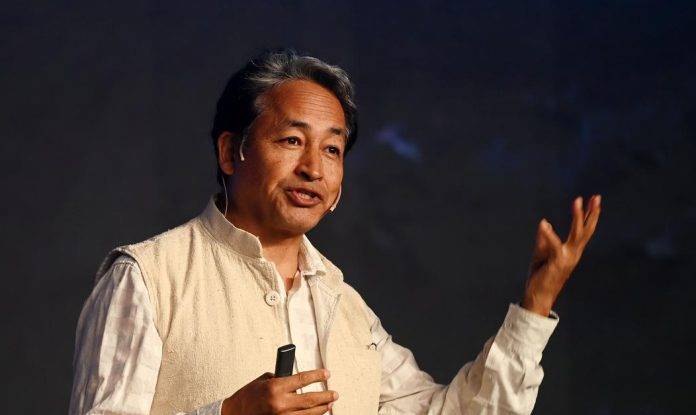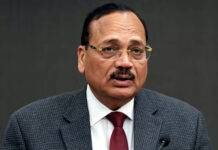Environmental activist Sonam Wangchuk, who is leading a movement demanding statehood for India’s border union territory of Ladakh and the implementation of the Sixth Schedule of the Constitution, has been detained under the National Security Act. Meanwhile, internet service has been suspended in Leh. A strict curfew continued for the second day on Friday in Leh city, with all schools and colleges closed until September 27.
Sonam Wangchuk had stated that he would address a press conference at Hotel Abduz in Leh on Friday, which would also be broadcast on Zoom. Although his secretary initiated the press conference, Wangchuk did not turned up at the venue. It was then revealed that he was detained just before the scheduled press conference.
In fact, shortly beforehand, a team led by Ladakh’s Director General of Police (DGP) SD Jamwal arrested Sonam Wangchuk in Leh. Mr. Wangchuk was scheduled to address the media after 2 p.m.
Government agencies had already begun tightening their grip on Sonam Wangchuk. The central government has revoked the FCRA license of the Students Educational and Cultural Movement of Ladakh, founded by Wangchuk. The Central Bureau of Investigation (CBI) has also initiated an investigation into alleged violations of FCRA regulations against the Himalayan Institute of Alternative Ladakh, run by him.
Mr. Wangchuk, 59, is a Ramon Mag Say Say Award recipient for his outstanding work . His arrest came two days after violent protests broke out in Leh city. The protesters, mainly youth, vandalized the Bharatiya Janata Party office and the secretariat of the Ladakh Autonomous Hill Development Council-Leh (LAHDC-Leh) during a procession. Four civilians were killed and a large number were injured in security forces’ action against the protesters.
The violence erupted on the 15th day of the hunger strike by Mr. Wangchuk and his associates. Mr. Wangchuk had been on a three-week hunger strike to pressurise the Union Home Ministry and Ladakh representatives to begin “result-oriented” talks on their key demands for statehood and the Sixth Schedule as soon as possible.
After the violence broke out, Mr. Wangchuk called off his hunger strike and appealed for peace in the region. However, in a statement, the Home Ministry said that the youth were incited by Mr. Wangchuk’s speech. It also alleged that he did not try to stop the violent protesters or prevent the situation from escalating, but instead left the scene and went to his















